Ken Klippenstein Slams Media Refusal To Publish CEO Killing Suspect’s Manifesto: ‘Paternalism At Its Worst!’
“Media paternalism at its worst.”
Independent journalist @kenklippenstein explains why he published the Luigi Mangione manifesto when corporate media outlets wouldn’t. pic.twitter.com/yRUK4PvTYl
— Democracy Now! (@democracynow) December 16, 2024
Independent journalist Ken Klippenstein blasted mainstream media organizations for their refusal to publish murder suspect Luigi Mangione’s manifesto as “paternalism of the worst kind.”
Homicide detectives arresting Mangione last week, in relation to the murder of UnitedHealthcare CEO Brian Thompson, who was gunned down in New York City, discovered a handwritten manifesto document in his possession criticizing the health insurance industry.
Releasing the manifesto in full on Dec. 10 via Substack, Klippenstein slammed major print and network outlets for “selectively quoting” from the material but not publishing it in full and lambasted the “media’s drift away from public disclosure.” He pointed out the promotion of a fake manifesto online as a rationale for publishing himself.
“Major media outlets are also in possession of the document but have refused to publish it and not even articulated a reason why,” he wrote at the time. “My queries to the New York Times, The Washington Post, CNN and NBC to explain their rationale for withholding the manifesto, while gladly quoting from it selectively, have not been answered.”
The police later confirmed the manifesto published by Klippenstein to be authentic.
Klippenstein was challenged on his decision to publish the document in full by Democracy Now host Amy Goodman on Monday.
The host began: “When we say that you were the first to publish the manifesto, you weren’t the first to get your hands on the manifesto. In fact, most media had their hands on it. Explain how you made that decision to publish it when they were withholding it.”
The major media outlets, from the New York Times to The Post, CNN, ABC, all had their hands on this document, were sitting on it, sharing it with themselves socially, which I know from my friends at these various outlets, but refused to provide it to the general public. And so when I obtained the document and read through it, I didn’t see any reason not to publish it. And so I went ahead and did that in response to what I saw as media paternalism at its worst, the judgment that this is safe for us to read, but it’s not OK for the public to read.
Asked about what in the manifesto was particularly newsworthy, Klippenstein noted the indication of motive in the attack. He continued to attack CNN for “trying to paraphrase” what was in the document and other organizations for trying to protect access in refusing to publish.
The [manifesto has an] overwhelming focus on the healthcare system as an institution… That’s not, of course, to say that it’s okay to kill somebody. I think that goes almost without saying, to advance those goals. But to see in this the fact that it wasn’t just a completely random act of violence as, in fact, the major media repeatedly asserted it was.
There’s one particularly egregious case by CNN in how they were trying to paraphrase the contents of the document, again, without providing the underlying document to the public to to their own conclusions, saying that in this are the, you know, rantings and ravings of a crazy person.
When you read through that document, which wasn’t that long, but it’s very clear from it that this individual was motivated by grievances about the health care system. And so that’s why it’s important to get that out to the public.
I think that if you ask these major media outlets why they didn’t do that, the explanations fall along roughly two lines. One is that it’s not safe for the public to have this. It might inspire copycat killings. I think that’s similar to saying violent video games are going to cause children to shoot up schools – I’m very skeptical of that. But in addition to that, what I found in the course of my reporting on that document was that there were deals that were struck with enforcement, which furnished this document to various media outlets in which they were essentially blackmailed into not releasing these records because they didn’t want to alienate the sources that they depended on for not just this document, but other exclusives.
Watch above on Democracy Now.
New: The Mediaite One-Sheet "Newsletter of Newsletters"
Your daily summary and analysis of what the many, many media newsletters are saying and reporting. Subscribe now!
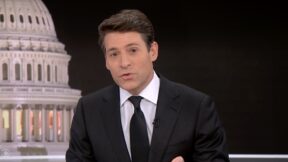
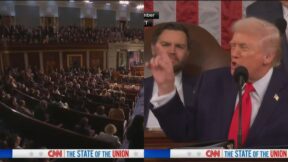
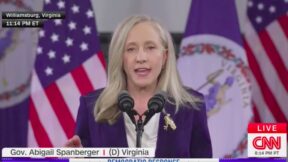
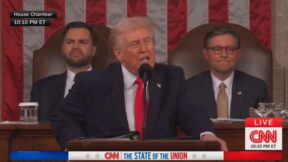
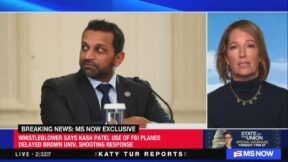

Comments
↓ Scroll down for comments ↓